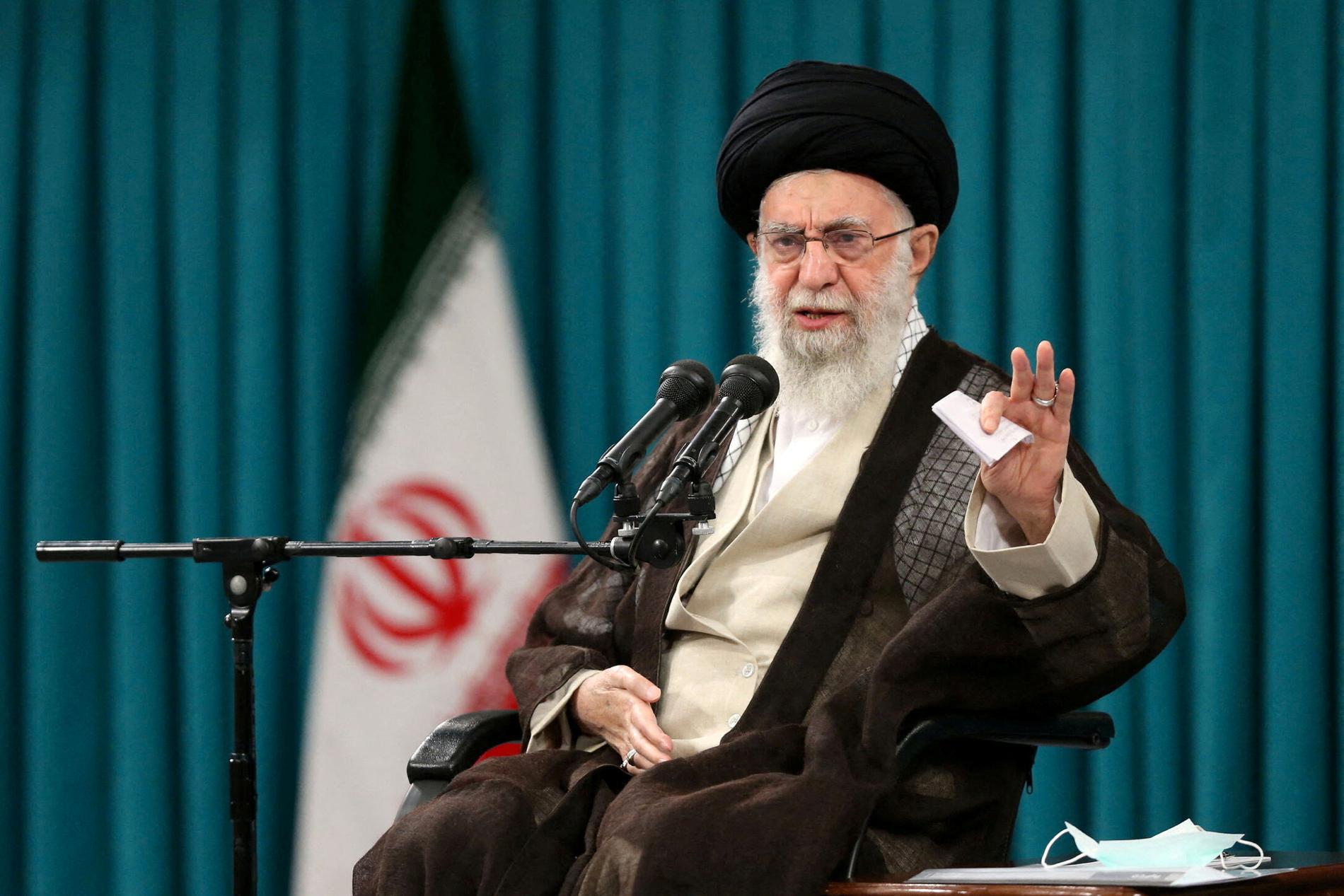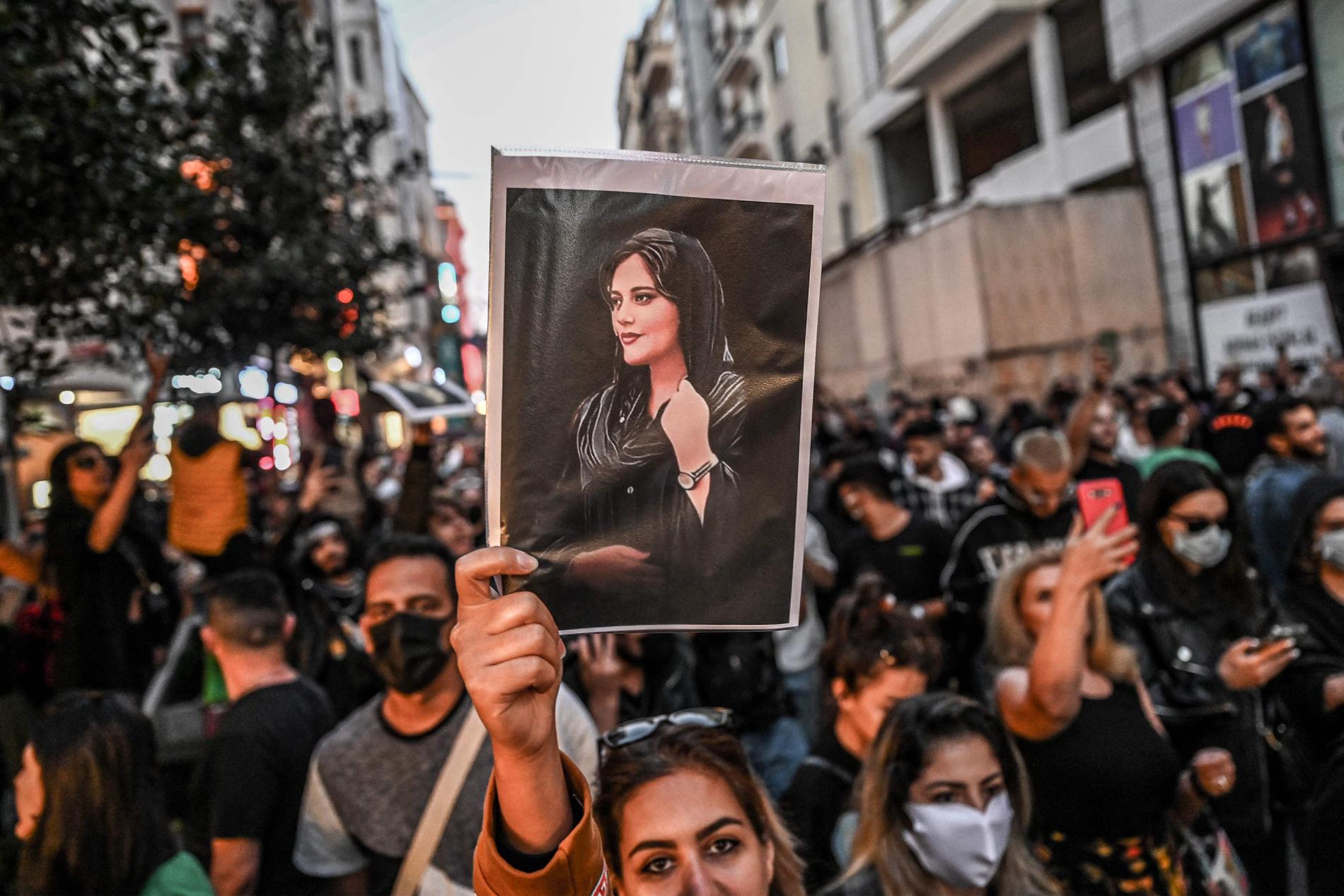Several Western media outlets quoted Iran’s attorney general on Sunday afternoon as saying that the controversial morality police will be shut down, after large demonstrations in the country this fall.
VG was among the newspapers that quoted Iranian attorney general Mohamed Jafar Montazeri, who during a religious conference on Saturday evening should have said that the morality police would be closed, according to statements reproduced by the AP and AFP.
Subsequently, several Iranian media outlets, including the state-run al-Alam TV channel, dismissed this claim:
– Some foreign media are trying to portray the Attorney General’s words as a withdrawal from the Republic of Iran on matters of hijab and silence, they write al-Alam on Sunday evening.
The TV channel writes that Jafar Montazeri was misquoted, and that he should instead have spoken of the moral police who “resigned” the patrols in the last time.
The moral police in Iran is controversial and enforces, among other things, strict rules on how women are allowed to dress.
The last few months in Iran have been marked by large demonstrations, after Mahsa Amini, 22, died in the custody of the morality police. The demonstrations also spread to much of the rest of the world, including Norway.
Iranian authorities cracked down on the wave of protests. The UN estimates that around 14,000 people were arrested during the autumn, and human rights organizations said around 400 were killed.
– I didn’t believe it for a second
Sharam Alghasi, a professor in the Communications Department of Kristiania University College, is closely following developments in Iran.
– When I heard the news over the weekend, I didn’t believe it for a second. It is typical of the Iranian regime to have so many different organs of power that they completely blend in, he tells VG.
– However, nothing is decided before the spiritual leader or the Revolutionary Guard has agreed, which we have not seen in this case, underlines the professor.
Religiously conservative Ayatollah Ali Khamenei has been Iran’s supreme leader since 1989. Two weeks ago praised Iranian Revolutionary Guards for ‘dealing with the riots’ in the country, despite criticism from the outside world.

Sharam Alghasi believes that the regime has adopted a deliberate communication strategy over the weekend and a desire to create confusion without anything fundamental actually changing.
– So the Iranian morality police is not finished?
– The moral police are far from finished. It’s about ideology to them and I would be shocked if they make such concessions. We can’t expect them to abide by their principles, he adds.
Marianne Hafnor Bøe, an Iran specialist and professor of religious studies at the University of Stavanger, points out that there is nevertheless some internal opposition to the moral police among Iranian authorities, and that it has therefore been confusing to follow.
The professor points out that the moral police is a relatively new institution, since around 2006, and that it was not an original part of the Islamic Republic in the country.
– They (the moral police, ed) have not had patrols recently, and there are many indications that there is an internal discussion about what will happen to them in the future, he tells VG.


